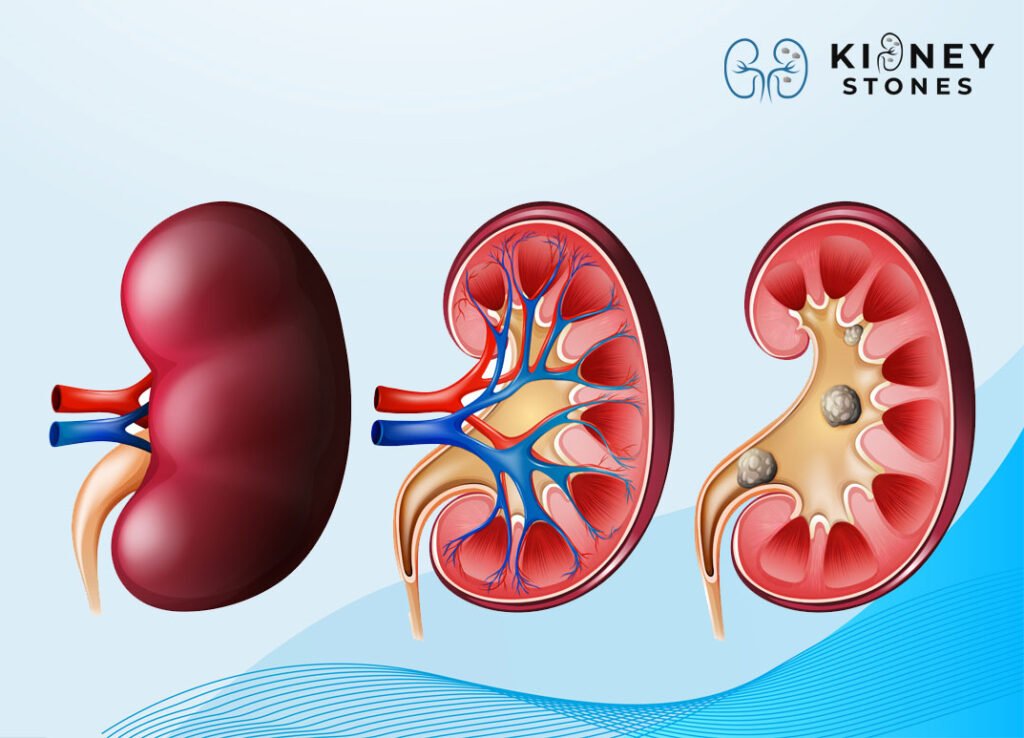Kidney Stone Treatment in Kukatpally: Comprehensive Overview
Kidney stones are hard deposits of minerals and salts that form inside your kidneys. They can vary in size and cause intense pain when passing through the urinary tract. If left untreated, they can lead to complications like urinary tract infections or kidney damage. Fortunately, advancements in medical treatments have made kidney stone management more effective. In this post, we will discuss the various aspects of kidney stone treatment in Kukatpally, Hyderabad, helping you understand the options available.

Understanding Kidney Stones
Kidney stones are typically formed when the balance of minerals and water in the kidneys is disrupted. The common types include:
- Calcium Stones – The most common type, formed from calcium oxalate or calcium phosphate.
- Struvite Stones – Often caused by urinary tract infections.
- Uric Acid Stones – These form due to high levels of uric acid in the urine.
- Cystine Stones – A rare type, formed in people with cystinuria, a genetic disorder.
The symptoms of kidney stones include severe pain (usually in the lower back or abdomen), blood in the urine, frequent urination, and nausea. When left untreated, kidney stones can lead to blockages, infections, or even kidney damage.

Kidney Stone Treatment in Kukatpally: What Are the Options?
There are various treatment options for kidney stones, depending on their size, type, and the severity of symptoms. The goal is to either help the stones pass naturally, remove them, or prevent them from coming back. Here are the primary treatment options available in Kukatpally:
Conservative Management
In some cases, smaller stones can be managed conservatively without the need for invasive procedures. This is known as “watchful waiting” or “conservative management.”
- Hydration: Increasing fluid intake is key. Drinking plenty of water can help flush out small stones naturally.
- Pain Relief: Medications like nonsteroidal anti-inflammatory drugs (NSAIDs) are often prescribed to relieve pain.
- Dietary Changes: Modifying your diet to reduce the intake of foods high in oxalates or sodium can help prevent stone formation.
Extracorporeal Shock Wave Lithotripsy (ESWL)
One of the most common treatments for kidney stones is Extracorporeal Shock Wave Lithotripsy (ESWL). ESWL uses high-energy shock waves to break large stones into smaller pieces, making it easier to pass them through urine.
- Procedure: A patient lies on a table, and shock waves are directed at the stone using imaging techniques.
- Benefits: Non-invasive, typically does not require general anesthesia, and is effective for stones that are less than 2 cm in size.
- Recovery: Most patients can go home the same day, though they may experience some discomfort and bruising.
Ureteroscopy (URS)
If a stone is too large to pass naturally or break with ESWL, a ureteroscopy may be recommended. This is a minimally invasive procedure where a small scope is passed through the urinary tract to reach the stone.
- Procedure: The ureteroscope is inserted through the urethra, bladder, and into the ureter. Once the stone is located, it can either be removed or broken up using a laser.
- Benefits: Effective for stones that are located in the ureter (the tube connecting the kidney to the bladder).
- Recovery: Ureteroscopy typically requires a short hospital stay, and patients can resume normal activities within a few days.
Percutaneous Nephrolithotomy (PCNL)
For very large stones or those located in the kidney itself, percutaneous nephrolithotomy (PCNL) may be required. This procedure is more invasive and is typically performed under general anesthesia.
- Procedure: A small incision is made in the back, and a nephroscope is used to remove or break up the stone.
- Benefits: It is effective for large stones that cannot be treated with ESWL or ureteroscopy.
- Recovery: The procedure requires a longer recovery time, with a hospital stay of 1-2 days, and patients may experience some discomfort post-procedure.
Open Surgery
Though rarely needed in the modern age, open surgery may be recommended if the stone is particularly large or in a location difficult to treat with other methods. This is a more invasive approach and is typically reserved for complex cases.
- Procedure: A large incision is made, and the surgeon directly removes the stone.
- Benefits: Effective for large or complex stones.
- Recovery: Longer recovery period compared to other methods, with a hospital stay of several days.

Choosing the Right Kidney Stone Treatment in Kukatpally
When selecting the appropriate kidney stone treatment, the best option depends on the size, type, and location of the stone, as well as the patient’s overall health. It’s essential to consult with a qualified urologist in Kukatpally, who can recommend the most suitable treatment based on your condition.
In Kukatpally, experienced urologists offer expert care for kidney stones, ensuring the most effective treatment tailored to each patient’s needs. The region is home to advanced technology and treatment options, including minimally invasive procedures like ESWL (Extracorporeal Shock Wave Lithotripsy) and ureteroscopy, which can provide faster recovery times and reduced discomfort.
By consulting with a trusted urologist in Kukatpally, you can ensure that your kidney stone treatment is comprehensive, safe, and effective.
Preventing Kidney Stones: Tips for Long-Term Health
Once kidney stones have been treated, it is essential to take steps to prevent future stones from forming. Here are some preventive measures:
- Stay Hydrated: Drink plenty of fluids, especially water, to help dilute the substances in urine that lead to stones.
- Dietary Modifications: Reducing the intake of salt, animal protein, and foods high in oxalates (like spinach and beets) can help.
- Medications: If you have a history of recurring kidney stones, your doctor may prescribe medications to help prevent new stones from forming.
- Regular Check-ups: Follow up with your urologist for regular monitoring and early intervention.